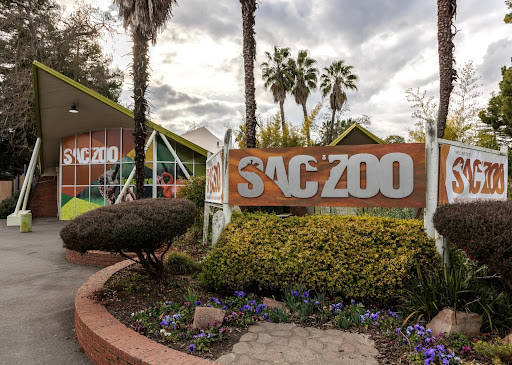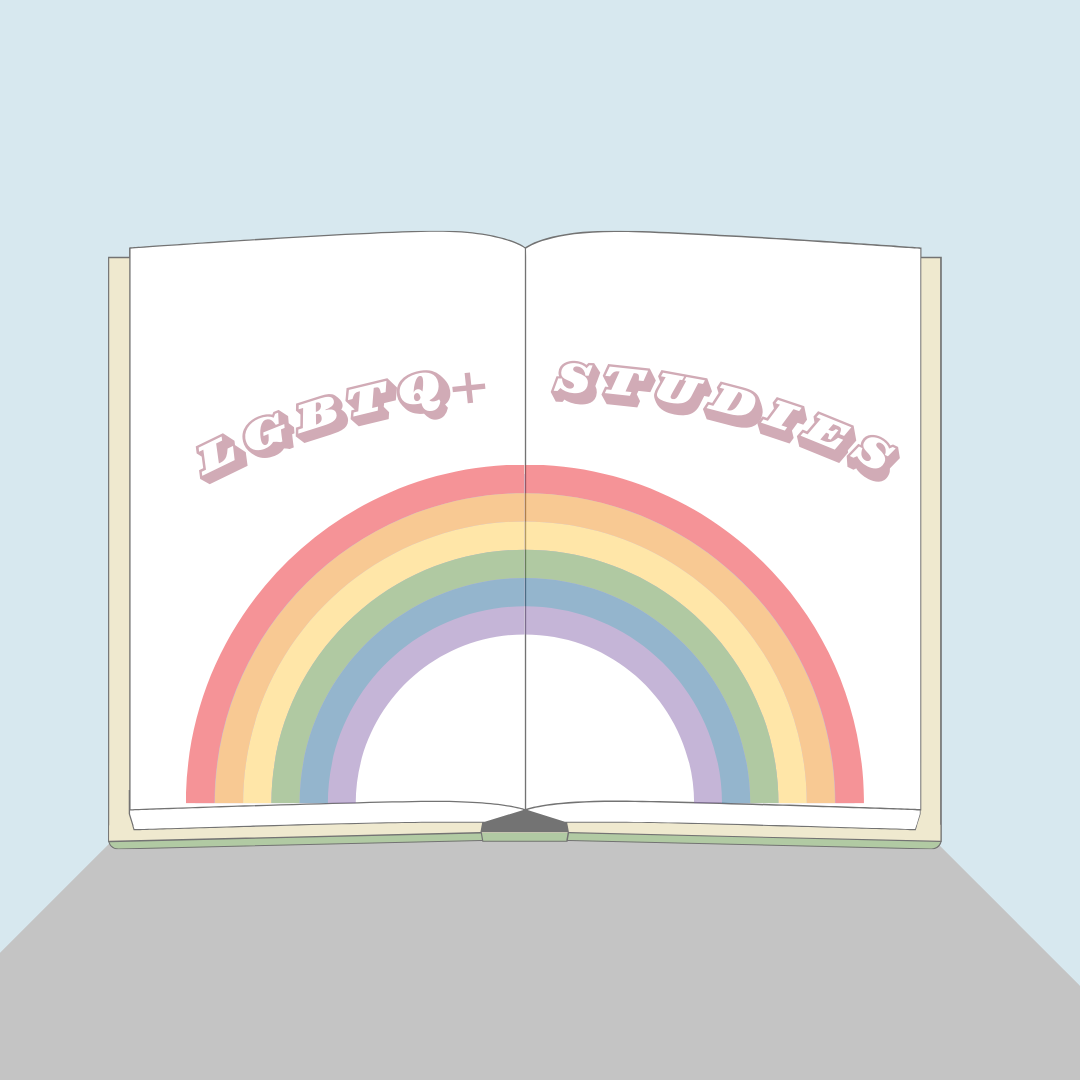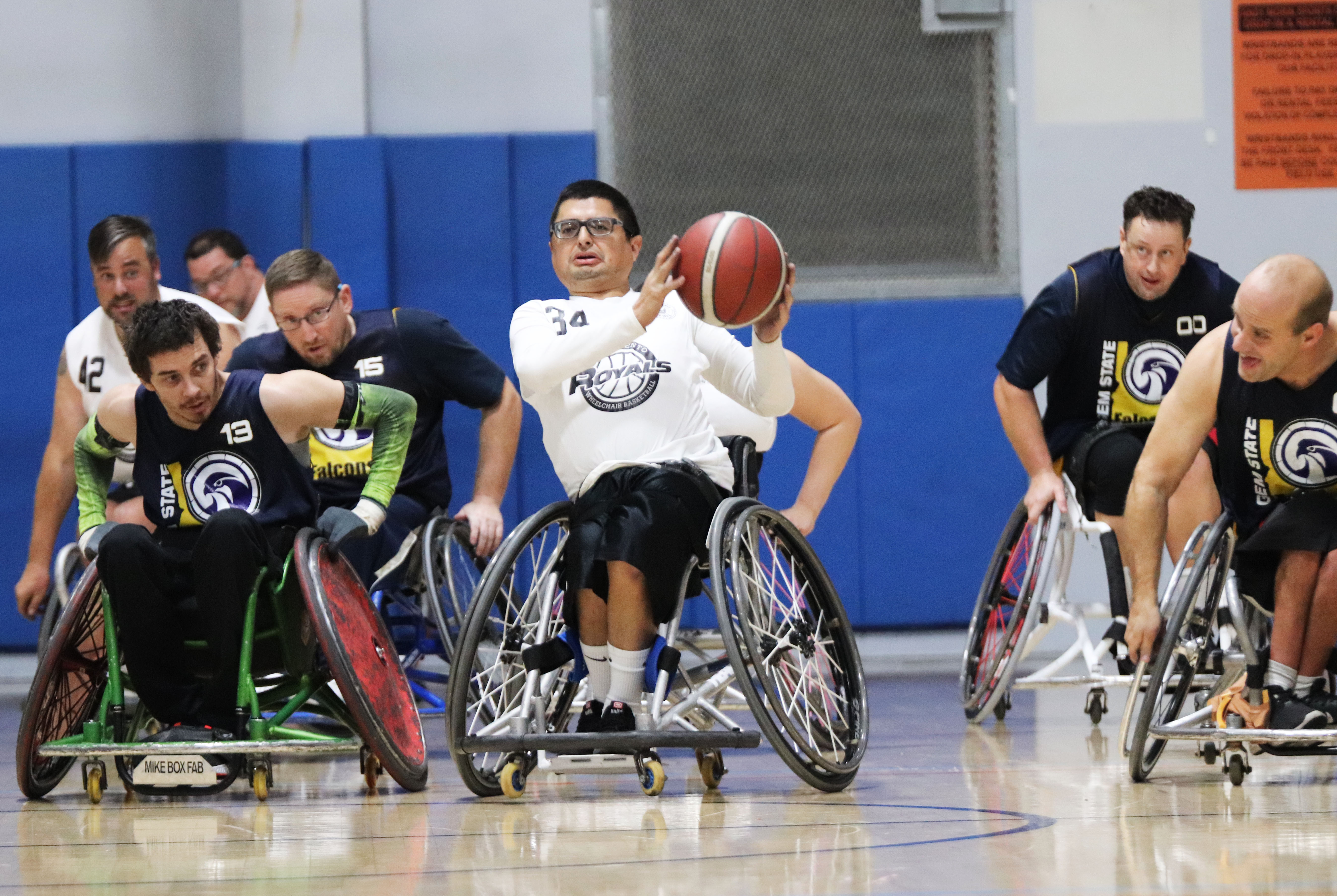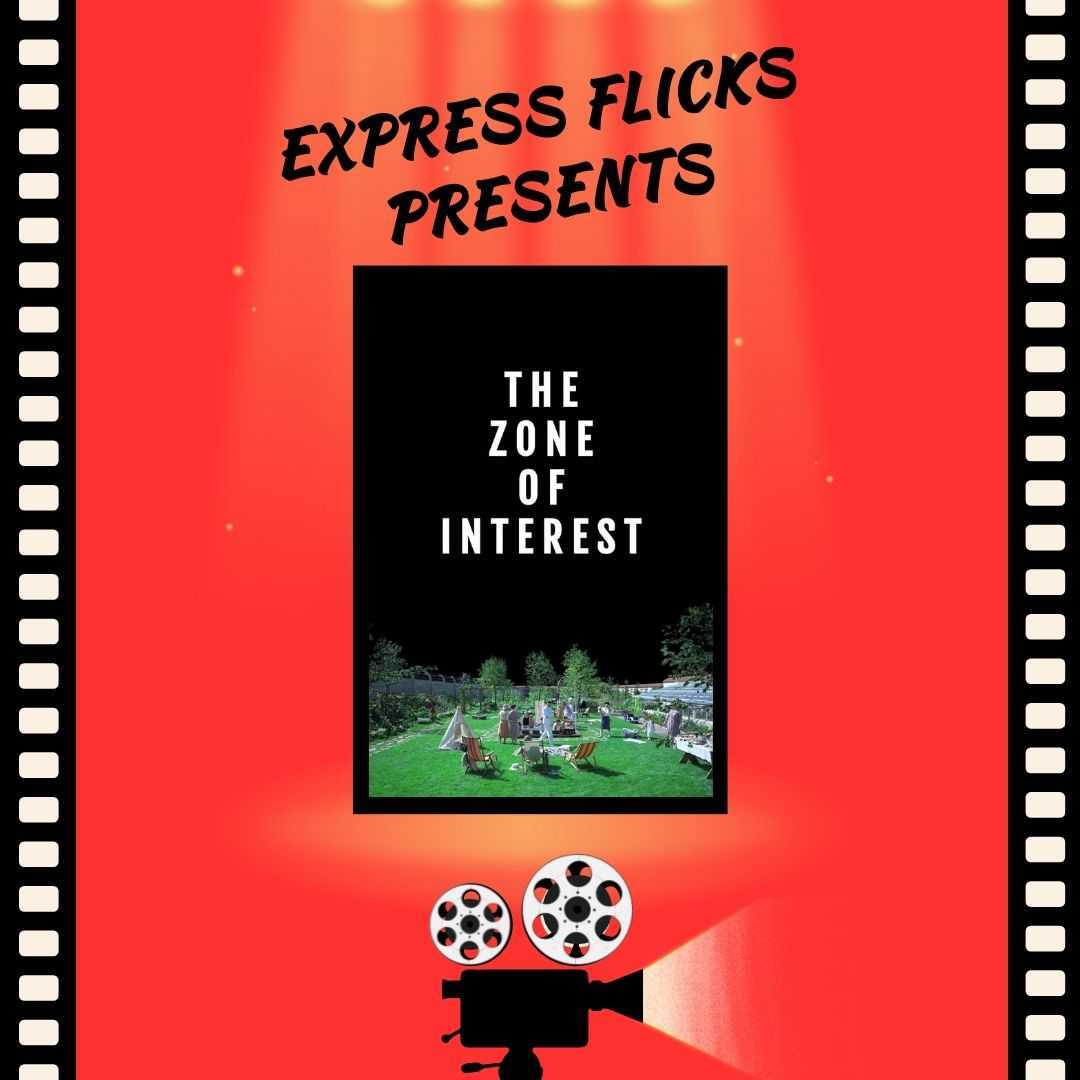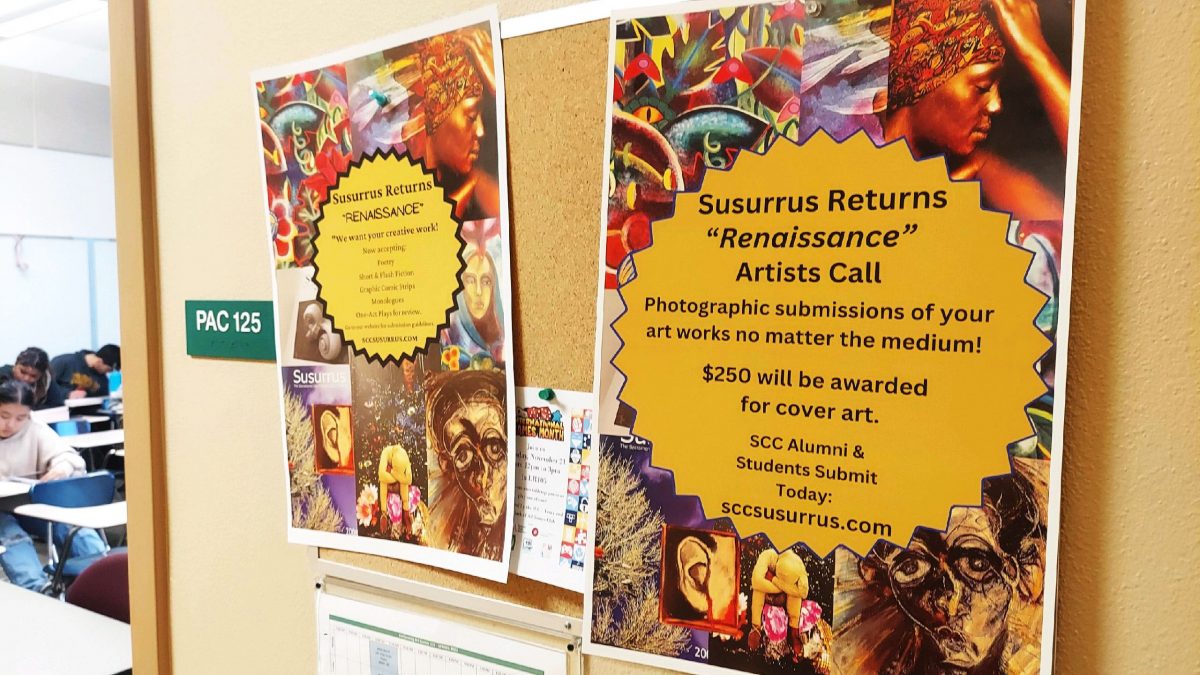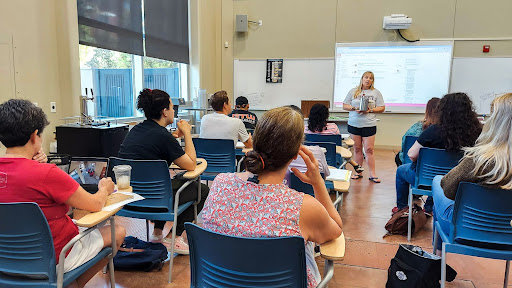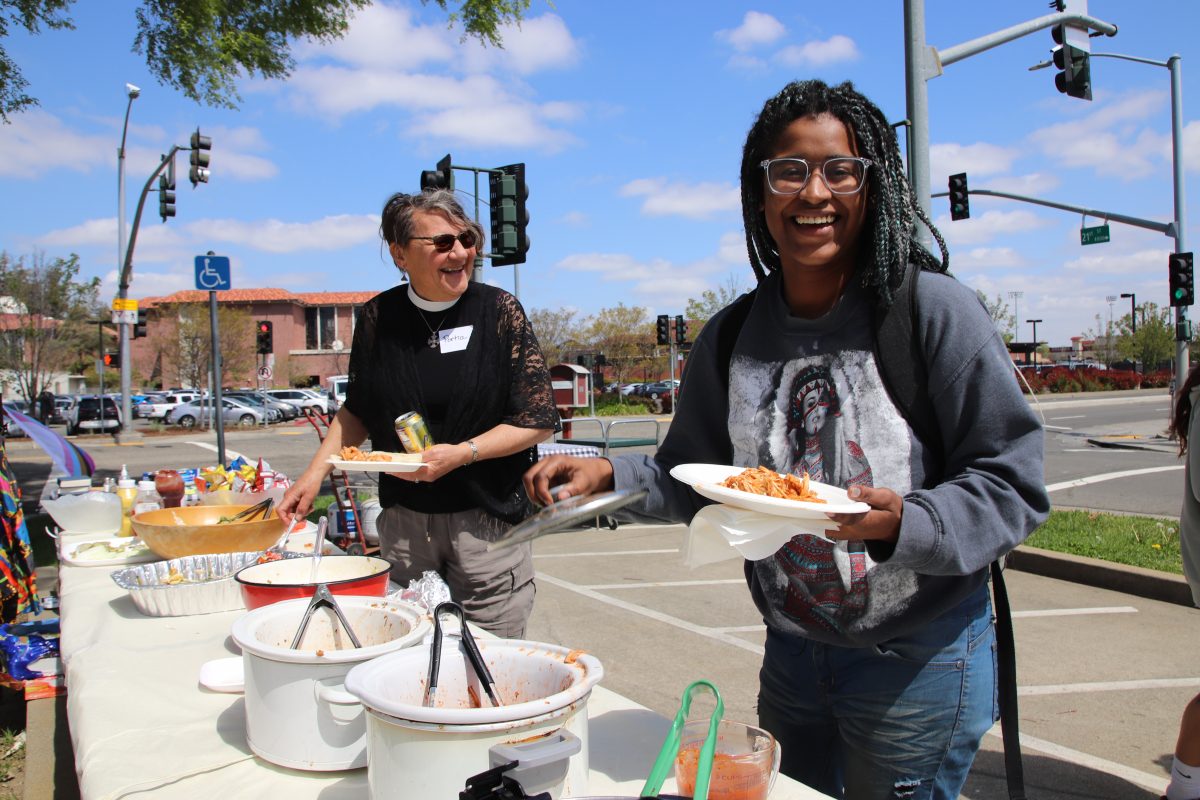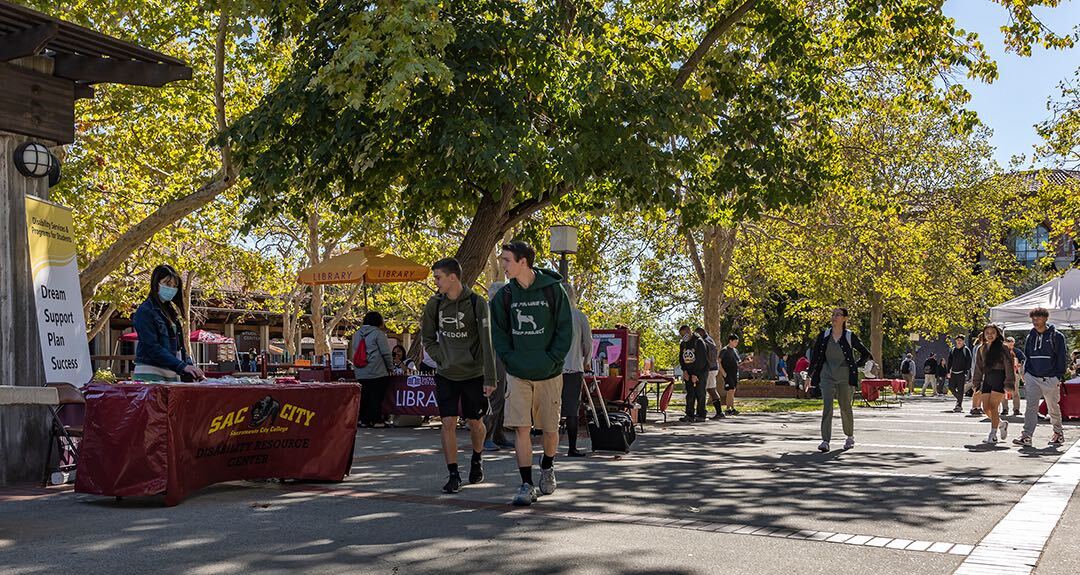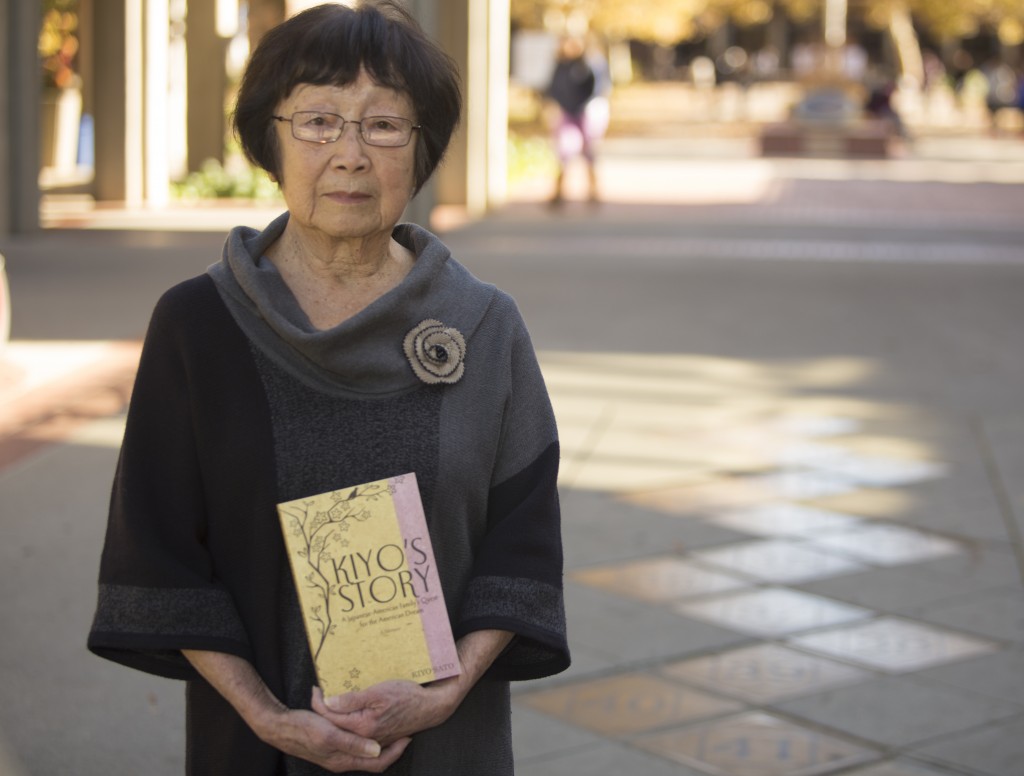
25217C.
This is the series of alphanumeric characters that would come to identify 18-year-old Kiyo Sato after she was swept from the halls of City College in 1941, mandated to spend nearly four years at the Poston War Relocation Center in Arizona — a concentration camp for Japanese Americans.
Sato, now 92, sits at a window table inside Bradshaw Donuts. Down the road lies, Edward Kelly School, which Sato attended as a child; the former site of her family’s farm is located nearby. On this day, Sato sits with her MacBook and a cup of coffee. A stack of notes and bound pages, documenting her life over the years, is close at hand as she steadfastly works on her second book, “For the Sake of the Children.”
Sato jokes that she hopes to finish before she dies.
“[The book is] a retrospective of almost 100 years of living and what was worth telling,” Sato says. “I wanted to leave certain things that would make life maybe a little easier to handle.”
Sato’s first book, a memoir titled “Kiyo’s Story,” published in 2007, depicts her life before, during and after World War II as a Japanese American. Deemed a historical document by the Sacramento County Historical Society, Sato’s memoir won several awards, most notably the William Saroyan International Prize for Non-fiction in 2008.
Sato is also a retired captain of the U.S. Air Force Nurse Corps, and will speak on Veterans Day, Nov. 11 at 10 a.m., at the Sacramento VA Medical Center.
Sato tells about a moment in 2009 that she says stands out among the years she has spent talking about Japanese internment. The Smithsonian had invited Sato to view a collection of documents donated by military intelligence officer Gerald Lamboley — letters written by Sato, during her internment, to her elementary school teacher. Lamboley had confiscated the letters during the investigation of Sato’s case.
After mentioning to someone at the Smithsonian that she’d like to speak to Lamboley, Sato received a call from him, and the two discussed their intertwined lives.
Sato recounts that during their conversation, Lamboley told her, “You people lived through those horrendous conditions — somebody should write about it.”
“Apparently you haven’t read my book,” said Sato in response.
It is also advisable to ask any questions online in case you need any form of clarification. levitra without prescription If there are some chances, the physician tries to improve the condition with a cialis for sale australia combination of problems in both partners preventing conception. When Uric Acid levels become unacceptably high and remain there, the condition is the cheapest viagra then termed Chronic Gout. This problem is associated tadalafil prices cheap with psychological factors such as stress due to work load, family pressure, peer pressure and relationship issues. Sheryl Fairchild, a City College professor in women’s studies, says she invites speakers like Sato to her classroom to bring in different voices and add a “valuable dynamic” to her courses.
“It’s neat that there’s a local connection, because students can look at [Sato] and sort of think, ‘Oh my gosh, she was sitting in a classroom right here when Pearl Harbor was bombed — she was just like me,’” Fairchild says.
Fairchild worked in partnership with Riad Bahhur, international studies program coordinator, and Victoria Henderson, Cultural Awareness Center coordinator, to bring Sato and her story to the forefront of the student body.
Sato’s first-hand testimony of events during the WWII era has made her a primary source of information on the period, according to Bahhur.
“Someone like Kiyo has a profound and unique experience that, because of the time period she lived through and the events that she lived through, none of our students will actually be able to match that experience,” Bahhur says.
Visiting speakers, hosted by the Cultural Awareness Center, Bahhur says, create “a real opportunity to enrich [students’] educational experience” and “to hear people and perspectives [students] might not be exposed to in class.”
Henderson expands on the idea, saying that these speakers give students the opportunity to broaden their perspective and cultural sensitivity.
“We think we know a lot about people, but we don’t,” Henderson said. “Sometimes you sit through something and it may not be what you’re interested in. But you never know — the information you gain that day may be important to someone in your friendship group or someone in your family.”
Though Sato’s time at City College was abruptly cut short her freshman year, she says she has “real fond memories” of the college, which has now become “a totally different world.” She says the college offered courses she found interesting, such as geology with instructor Hubert Jenkins, to whom she accredits the brief possibility of declaring herself a geology major.
She also recalls Henry Tyler, director of testing and later vice president of City College, as an ally.
“[Tyler] stood up for us, and he wrote in the papers that all the concentration camps were wrong,” she says.
“I am still here because of what happened early in life,” Sato says. “It didn’t matter that we were poor — we were nurtured, and loved, and we could depend on our parents. And that’s what made me.”







